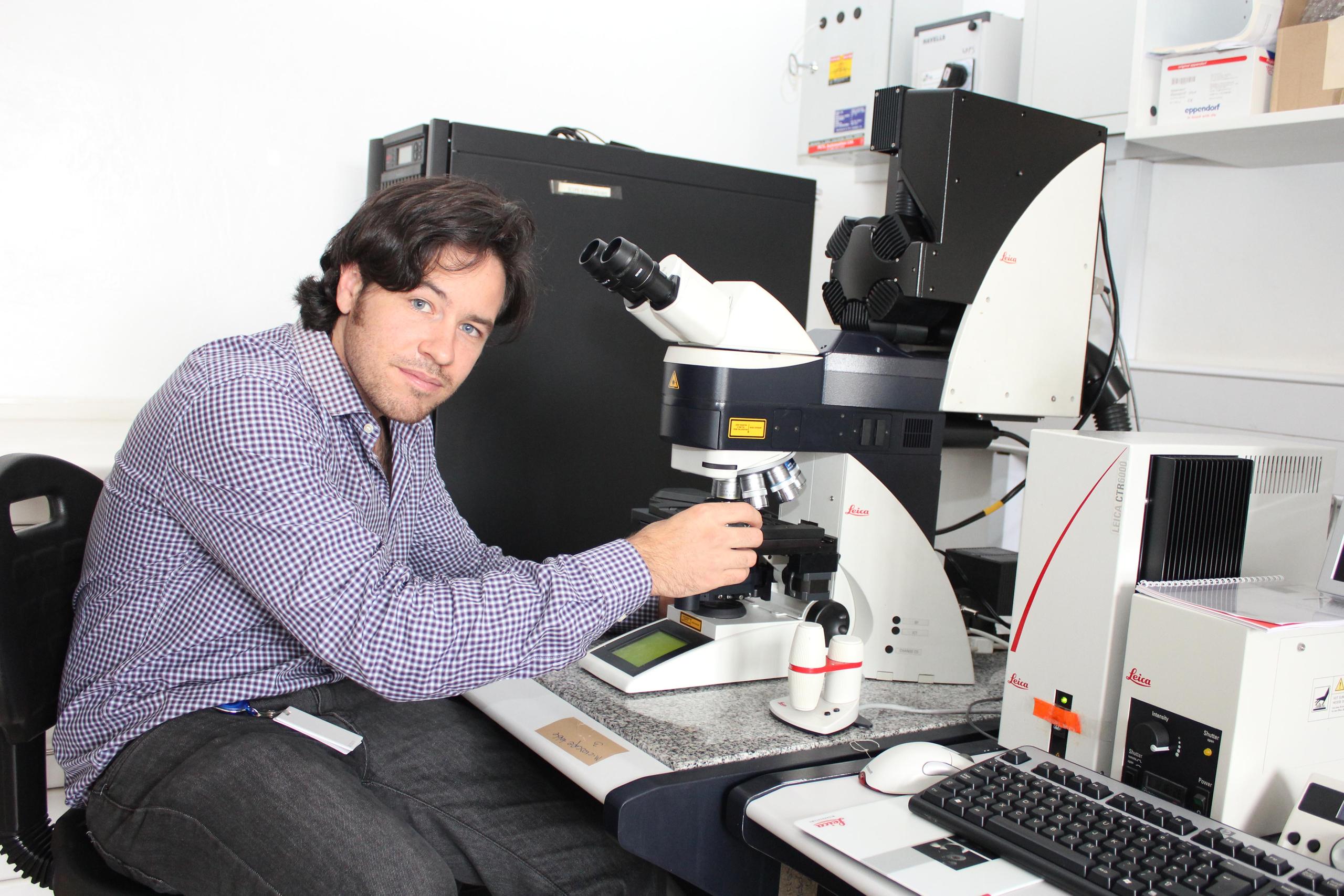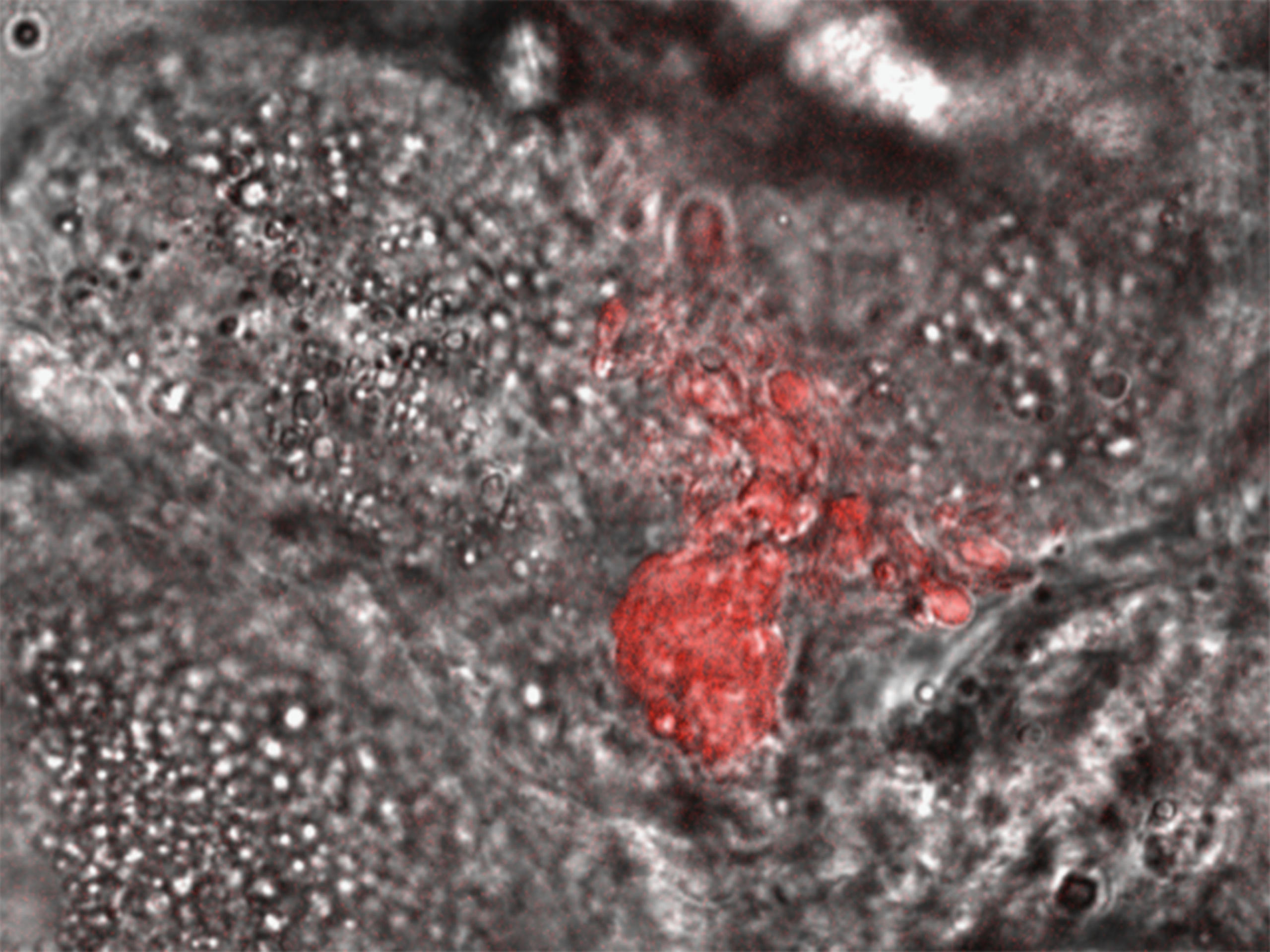
Swiss scientist’s work could stop malaria – but how soon?

When Jeremy Herren left Switzerland to start a bold new research project in Kenya, not many people thought he would succeed. Now, after six years of research, he and his team have announced a breakthrough in the fight against malaria. But it could take years to find out whether the new approach is feasible in practice.
The young Swiss researcher and his team at the International Centre of Insect Physiology and Ecology (icipe) discovered a microbe that naturally occurs in about 5% of a mosquito species common in East Africa. This single-cell fungus, called Microsporidia MB, keeps the mosquitoes from carrying malaria parasites.
“What we have found is very promising,” says the 35-year-old Herren via video call from his home in Nairobi. “Once we figure out how to disperse Microsporidia MB over a large area, this strategy can be successful quite quickly. The microbe would then spread on its own, hopefully over a long period of time.”
Herren’s work on malaria – which kills some 400,000 people every year, mostly in sub-Saharan Africa – has taken him around the world. He studied biology in the UK and US and then did a stint back home in Switzerland where he earned his doctorate at the Federal Institute of Technology in Lausanne (EPFL). Then, at icipe’s research facilities on Lake Victoria in western Kenya, Herren spent weeks among the mosquitoes, studying them in the wild.

Without that on-site research, he says, “we wouldn’t have found this microbe, because mosquitoes kept in a laboratory are very different from their wild counterparts.”
What’s next?
Experts agree on the urgency of finding new solutions to combat malaria, especially since the World Health Organization expects the Covid-19 pandemic to double the number of malaria deaths due to restricted access to bed nets, insecticides and medicines. Herren is currently working on making the biological discovery applicable in practical malaria control. His team is looking for other promising microbes in all relevant mosquito species while testing the best way to spread Microsporidia MB among the mosquito population.
“We are breeding heavily infected males and will release them in greenhouses that resemble natural habitats,” says the researcher. “We hope that within a short time, the whole mosquito population will be infected with Microsporidia MB and will thus be free from malaria parasites.”

The transmission strategy has worked before, in the fight against dengue fever. In northern Australia, entire dengue mosquito populations were infected with the Wolbachia bacterium, leaving the region dengue-free for more than four years.
How soon?
Christian Lengeler of the Swiss Tropical and Public Health Institute (Swiss TPH) notes that the challenges in malaria control appear to be more complex than for other vector-borne infectious diseases. For that reason, the Head of Unit at the Swiss TPH and professor of epidemiology at the University of Basel warns against setting expectations too high.
Lengeler finds Herren’s research “very interesting from a biological point of view” but says “it will probably take another ten years of development to be able to say whether this approach is suitable for combating malaria”.
Unanswered questions include whether the microbe also occurs and is effective in other mosquito species that were not investigated in the study and whether microsporidia, which were much more difficult to breed than bacteria, can be transmitted in sufficient numbers to infect entire mosquito populations.
“I know it is only a beginning,” says Herren. “We still have many challenges to overcome before a new strategy to combat malaria is available in practice.”
Herren’s research in Nature CommunicationsExternal link

In compliance with the JTI standards
More: SWI swissinfo.ch certified by the Journalism Trust Initiative
















![The four-metre-long painting "Sonntag der Bergbauern" [Sunday of the Mountain Farmers, 1923-24/26] had to be removed by a crane from the German Chancellery in Berlin for the exhibition in Bern.](https://www.swissinfo.ch/content/wp-content/uploads/sites/13/2025/12/01_Pressebild_KirchnerxKirchner.jpg?ver=bb19e376)














You can find an overview of ongoing debates with our journalists here . Please join us!
If you want to start a conversation about a topic raised in this article or want to report factual errors, email us at english@swissinfo.ch.